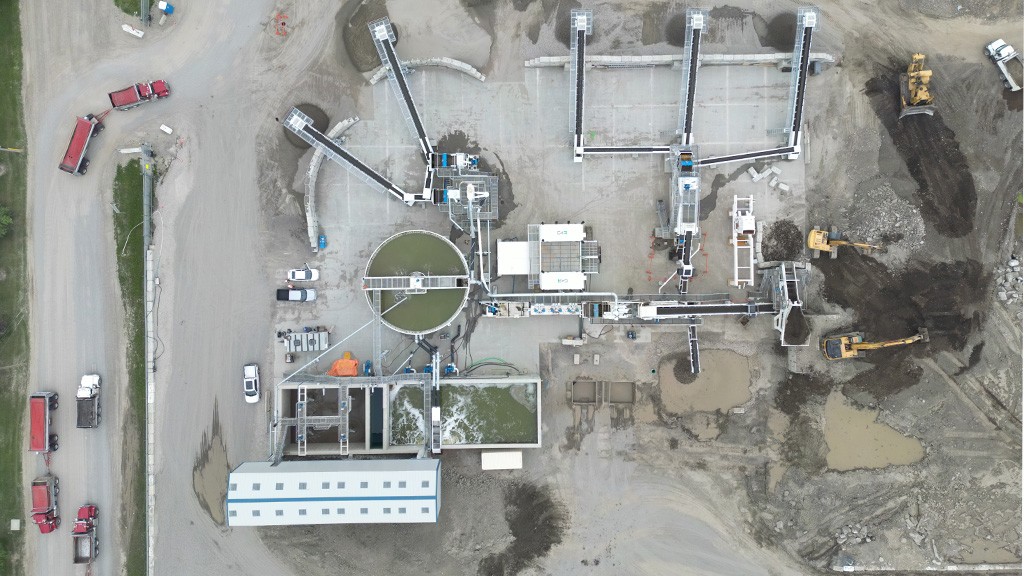How government policy can help C&D recyclers
Building end markets is the best way to boost recycling rates

Several actions can be taken by governments at all levels to support the recycling of construction & demolition industry waste products. One of the most common tactics is landfill disposal bans on recyclable materials in the waste stream. Two examples are the ban on drywall disposal in British Columbia, and the requirement in King County, Washington that all C&D loads with more than 20 percent recyclable material be rejected at the transfer station and sent to a Material Recovery Facility.
However, the most important part of any recycling process is having strong end markets. The current situation in China is not making it any easier for recyclers, especially on the West Coast of North America.
As many know, China has long been a key end point for recycled materials ready for development into new products, mainly with respect to the traditional stream commonly referred to as curbside recyclables - paper, cans, glass, etc. Recently, low levels of deleterious requirements were installed for incoming loads of recyclables into China, to levels never seen before and nearly impossible to achieve.
While this policy is affecting plastics and paper, we have also seen how the end of local market outlets has hurt the recycling of C&D materials.
C&D biomass is a good example. The state of Massachusetts has a disposal ban on C&D wood that hasn't passed through a recycling centre, but the amount of wood available for fuel in that region is overwhelming compared to the limited number of power plants that will use the end product - to the point where some of the fuel is being shipped as far away as Quebec. Few other local markets besides this one are available, making wood a major problem in New England and putting pressure on Canadian recyclers.
A similar situation happened in the U.S. Pacific Northwest region. While local governments there strongly encourage the recycling industry to recover as much as possible, in recent years some market outlets have disappeared. One large paper product company in the region, for example, that previously used C&D biomass as a fuel, has switched to natural gas. Multiple paper mills have also closed. No other new markets have opened up to fill the large hole for wood waste that these changes have brought. This has seriously and negatively impacted the local market for C&D biomass.
We appreciate and support government initiatives to support recycling and recognize that bans are one tool in the government "tool kit," but we suggest that governments at all levels in North America should work assiduously to help find end markets for recycled products. A few examples of how this can be done include tax incentives, pilot project funding and market demand incentives. As the China situation has shown us, without strong end market stability and demand, good recyclable materials end up in landfills, even with government disposal/recycling mandates.
C&D World celebrates 25 Years
The CDRA (Construction & Demolition Recycling Association) does many remarkable and beneficial projects for the C&D recycling industry. But the longest running benefit that provides the most exchange of information is C&D World, the annual meeting of the CDRA. The most recent meeting, C&D World's 25th Anniversary event, was held in Nashville, February 10-13.
For 25 years the CDRA has presented the latest updates on the issues and opportunities in our industry, with an annual event that includes an exhibit hall with the newest and best products and services for C&D recyclers. But perhaps the most important function of C&D World is the opportunity presented for attendees to interact in a non-competitive arena. It allows for a free exchange of information from all over North America. This was especially important 25 years ago when the show started, as there was nowhere for industry participants to find ways to improve their businesses.
C&D recycling has changed and improved a lot in the past 25 years, and we like to think C&D World has done its part in fostering those improvements.
Besides serving as president of the Construction & Demolition Recycling Association (CDRA), Troy Lautenbach is president of Lautenbach Industries. Mount Vernon, Washington, USA.
This article was originally published in Recycling Product News, January/February 2018, Volume 26, Number 1.
Company info
35 E. Wacker Dr., Suite 850
Chicago, IL Phone: 866.758.4721
Chicago, IL
US, 60601
Website:
cdrecycling.org
Phone number:
866.758.4721



